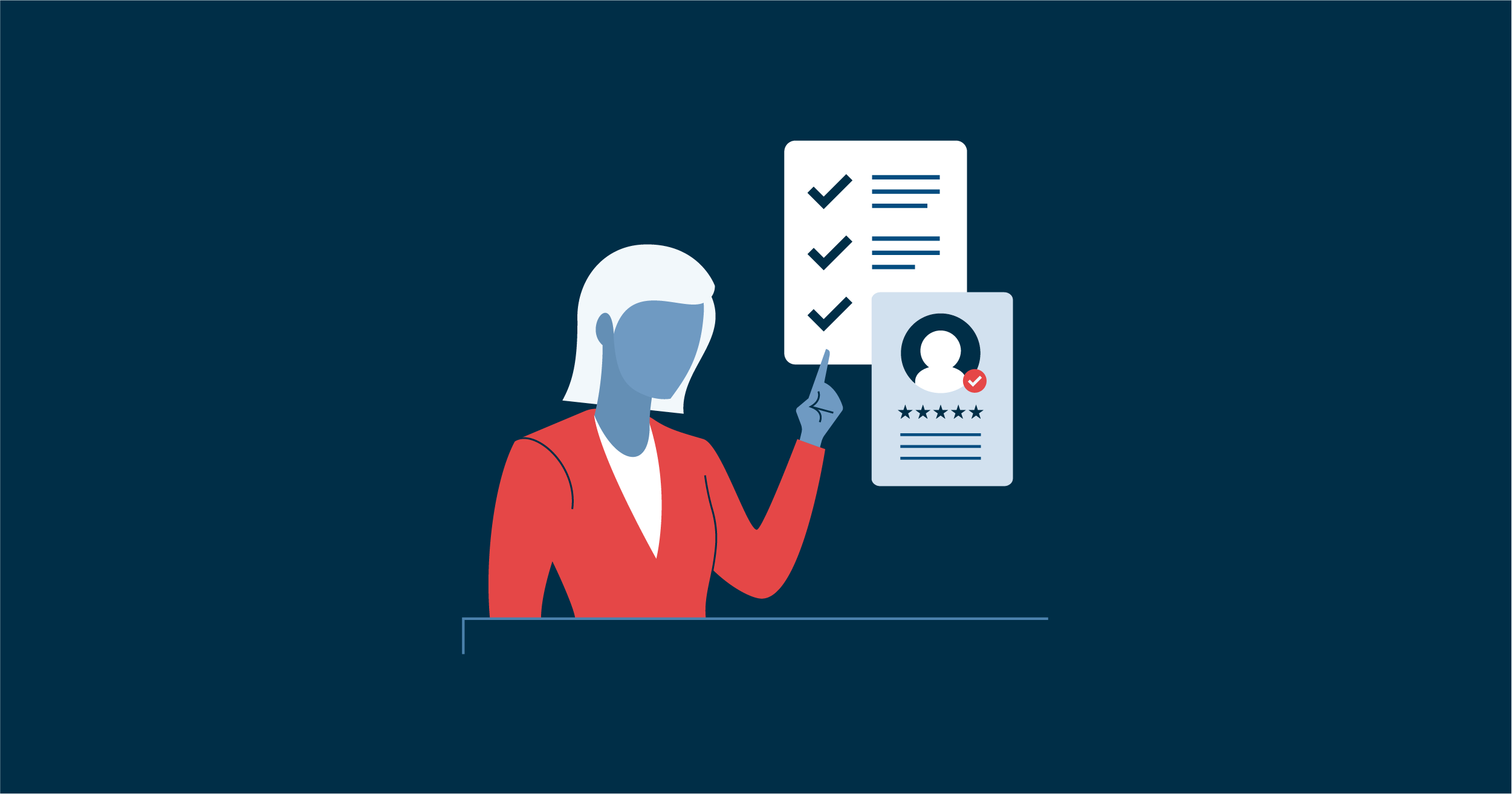This article was originally published on 23/07/2019
Technical skills are valuable when searching for a job, but HR teams are increasingly looking for soft skills when recruiting. This article evaluates the importance of soft skills in the current job market and which ones stand out in post-COVID workplaces.

In this article
Covid-19 brought changes to workplaces that have altered how employees approach the job market, as well as how employers manage their searches. Even though technical skills are still sought after when looking for an ideal candidate, HR teams are increasingly seeking human skills that cannot be easily delivered by technology. These soft skills are just as important when it comes to ensuring business continuity, agility and productivity, but what do we mean by soft skills? And why are they so important in the workplace?
What are soft skills?
Soft skills are character traits that determine how a person interacts with other people. These non-technical traits are often referred to as “people skills”, “emotional intelligence”, or “interpersonal skills.”
Soft skills can affect several attributes in your day-to-day activities such as relationships, communication abilities, empathy, problem-solving capabilities, leadership qualities, or teamwork.
What is the difference between soft skills and hard skills?
Soft skills are personal qualities that shape how you work, act, and communicate. Hard skills are the attributes that relate to a person’s knowledge and professional skills. Hard skills are often developed through practice and education, such as courses or on-the-field experience.
Jobs require certain technical skills or knowledge specific to their industries. A translator needs to be bilingual or possess multilingual skills; an online marketer may need to have SEO and analytics skills; and if you work in accounting, you probably need to know how to use spreadsheets.
However, hard skills alone do not guarantee professional proficiency. While your local GP may have a thorough knowledge of medicine and technical skills to identify what’s wrong with you, this talent would be marred if your doctor were not empathetic, a good communicator, or — more importantly — a good listener.
It can be relatively easy to perform tests to determine and measure if people possess hard skills. Similarly, you can teach or nurture these skills with training software and programmes. However, during the recruitment process, human resource teams and hiring managers may find that soft skills are harder to evaluate, even though group assessments, behavioural interviews, situation simulations, or reference checks can help get an idea of somebody’s soft skills.
What roles do soft skills play in the workplace?
In the workplace, soft skills complement hard skills. Even though soft skills may seem trickier to develop, they are still crucial to business success. Job-focused, technical hard skills are an asset. However, if an employee cannot adapt to a team environment or empathise with peers, they cannot guarantee a functional work environment or success in the workplace.
Consequently, the role of soft skills in the workplace is shifting. Even before COVID-19, workplaces were changing due to digital transformation. Technological developments like automation, artificial intelligence, and chatbots are changing the nature of work, with sequential, quantifiable processes being catered to by machines.
On the other hand, the increasing growth of agile, customer-centric work environments has redefined the key skills HR teams may look out for when recruiting candidates. This has further strengthened the role of specific soft skills. Nonetheless, different workplaces will require diverse soft skills.
The importance of soft skills in HR
The basis of recruitment is to identify the skills needed by candidates to carry out the tasks attached to a position. Therefore, recruiters look for people who possess both hard and soft skills.
HR teams identify the hard skills a candidate needs to succeed in a job application and seek them during the recruitment process. However, when push comes to shove, and recruiters and hiring managers need to choose between candidates, soft skills, such as emotional intelligence, can be more valuable than hard skills.
The job market is very competitive. It is often easier to teach somebody to use a design programme than to teach a person to be empathetic or adaptable to change.
COVID-19 has further altered the job landscape and the skills HR teams seek. Companies have shifted from the industrial, product-driven culture to a customer-focused, social community. With this shift, soft skills like collaboration, team building, or creativity are increasingly in demand.
COVID-19 has done more than accelerate remote-work capabilities. Social distancing, reduced workforces, and increasing digitisation processes led companies to seek employees who could adapt to varied roles. These workers needed to take on new responsibilities and work closely in agile teams to keep operations running while respecting the company’s culture and values.
10 essential soft skills in post-COVID workplaces
Soft skills helped businesses adapt to the changes brought by the pandemic. Now that we are entering the “new normal”, HR teams understand what skills are key to keep their company running. These recruiters have gradually integrated soft skills into assessment and recruitment criteria.
Here are some of the soft skills that are essential for candidates to possess in a post-COVID workplace.
- Flexibility and adaptability: During the pandemic, businesses have adopted agile work methods that cater to new digital needs. Companies had to redesign workflows and seek new opportunities within a remote work environment. HR teams have learned to value employees who performed well under pressure, adjusted to new responsibilities, and responded well to change.
- Creativity: Decision makers have had to find new business opportunities during these difficult times. Those who can think outside of the box to seek innovative approaches can deliver solutions that can help companies be more productive.
- Critical thinking: Critical thinkers ask the right questions and are not daunted by the need to analyse things further to reach positive outcomes. Importantly, critical thinkers evaluate different scenarios and alternative solutions.
- Emotional intelligence: Employees must be able to identify and interpret their own emotions and those of others to improve the effectiveness of their relationships. This can make it easier for teams to assess the impacts of specific decisions and evaluate if they will be positive or negative.
- Resilience: The American Psychological Association defines resilience as “the process and outcome of successfully adapting to difficult or challenging life experiences, especially through mental, emotional and behavioural flexibility and adjustment to external and internal demands” Resilience requires the ability to see problems in the workplace, such as the effects of the COVID-19 pandemic, as learning opportunities rather than a reason to fret and panic.
- Communication: Managers should be proficient communicators to guide employees during tough times, but communication is also vital to building a productive and collaborative team. Communication and interpersonal skills aren’t just about your ability to emit a message, albeit written, verbally or nonverbally. It’s also about listening and understanding what you are being told.
- People management: Recruiters value managers who can identify the skills a project might need and motivate people to form a team and deliver the project successfully. This can be achieved by leveraging strong communication and interpersonal skills, as well as proficient leadership qualities.
- Teamwork: Agile teams will require strong collaboration and flexibility. Therefore, HR teams will look for candidates who can work with others. These people use their individual skills but also aptly listen and provide feedback and assistance to colleagues when necessary to achieve a common goal.
- Negotiation: Not every role will require negotiation skills, but the ability to avoid confrontation and seek compromise with a solution that satisfies both parties is an advantage.
- Time management: With so much change, it can be easy to get bogged down with busy schedules. Time management isn’t straightforward, and each person or team needs to find a method to manage time efficiently. Technology such as time-tracking software or methodologies and life-hacks like the Pomodoro technique can help people develop these skills.
Soft skills are more essential than ever
After COVID-19 disrupted the workplace, the importance of soft skills grew as companies sought employees who could maintain business continuity and productivity.
Human resources, by integrating soft skills into the main HR processes (recruitment, training, talent management, etc.), have an essential role to play in supporting this business transformation.
During the pandemic, and now that we are returning to a new normality, technical skills are still valued. However, the impact of softer skills such as emotional intelligence, communication and adaptability has helped keep businesses moving. They are also closely linked to culture, corporate values, leadership models, and performance.
In short, they are the basis of customer and employee engagement.
HR will value skills that machines cannot yet perform or automate. Quantitative, memory-based, or administrative skills will be losing importance in lieu of soft skills that can strengthen relationships and lead to innovation and profitability while allowing businesses to keep on track with cultural shifts throughout the entire organisation.

